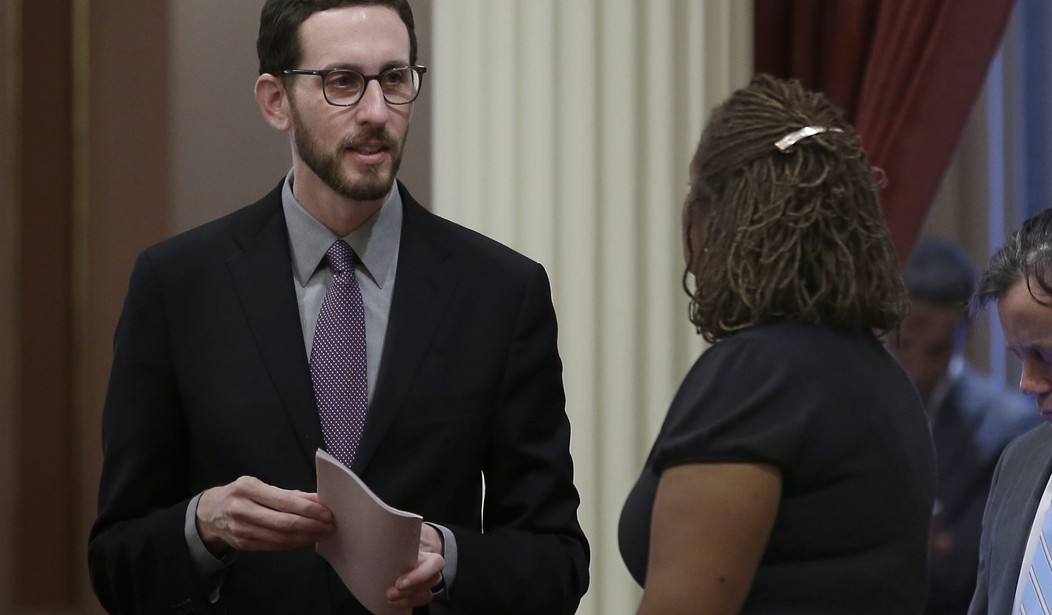People who are HIV positive have long been required to disclose this status before engaging in unprotected sexual intercourse. Considering the life-threatening condition caused by HIV, it stands to reason that potential partners have a right to know, since the disease is easily passed through sexual contact.
However, in what is being described as a test of just how much feelings have changed on the disease, a group of lawmakers in California have presented a bill that will make it no longer a felony to engage in unprotected sex without disclosing the condition to their partner, instead making it a misdemeanor.
Because of “the stigma.” To save the hurt feelings of the dishonest partner:
In a test of shifting attitudes about HIV, a group of state lawmakers has proposed that it no longer be a felony for someone to knowingly expose others to the disease by engaging in unprotected sex and not telling the partner about the infection.
The measure by state Sen. Scott Wiener (D-San Francisco) and others would make such acts a misdemeanor, a proposal that has sparked opposition from Republican lawmakers.
The same downgrade in crime level would apply to people who donate blood or semen without telling the blood or semen bank that they have acquired immunodeficiency syndrome, or AIDS, or have tested positive for human immunodeficiency virus, or HIV, the precursor to AIDS.
“HIV-related stigma is one of our main obstacles to reducing and ultimately eliminating infections,” Wiener said. “When you criminalize HIV or stigmatize people who have HIV it encourages people not to get tested, to stay in the shadows, not to be open about their status, not to seek treatment.”
Currently, those convicted of felonies can be sentenced up to seven years in prison.
Now, I fully understand that HIV isn’t the automatic death sentence it used to be. However, it’s still a life-threatening condition requiring lifelong medication. A serious crime has been committed against a partner who contracts the disease from someone they didn’t know had it.
This is a sensitive topic for me. When I was in the Navy, I was a corpsman at Portsmouth Naval Hospital on an internal medicine floor. We treated AIDS patients, including one young woman who didn’t have much time left. She’d had unprotected sex with her husband, who had contracted the disease while being unfaithful somewhere in Europe.
She’d wasted away to nothing because of the irresponsibility of someone else’s actions. It was hard to work with her because it was just so sad to see. She wasn’t that much older than I was, after all.
Wiener and his cronies are telling people that what happened to her can be ignored because of the hurt feelings of others who have HIV. They’re presenting it as if people who insist that HIV positive individuals take responsibility are somehow evil bigots. We’re not.
Even with the life expectancy being far longer than it used to be, it’s not an easy existence to remain healthy with all the expensive medications one needs to survive. All that suffering just because someone didn’t want to tell them something.
If someone steals your identity, there’s generally no chance of you dying from it, but it screws up your credit for some time. It takes years to get that straightened out, and that could impact you financially until it’s all sorted. But it does get sorted.
We still make identity theft a felony.
A mere misdemeanor for giving someone a life-threatening condition when the perpetrator knows they have it, but decided to remain silent? The ramifications are far longer-lasting, and in some cases have more of a financial impact, than identity theft.
But no, let’s allow people to risk others’ lives, and put feelings over morality.








Join the conversation as a VIP Member